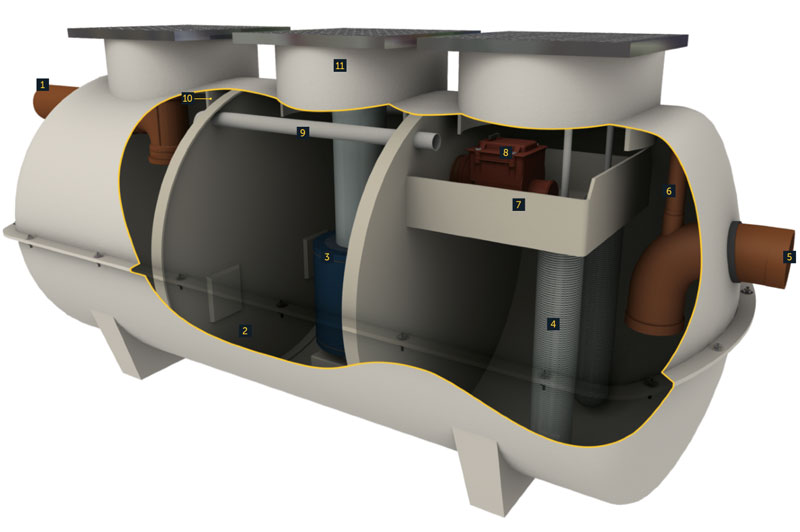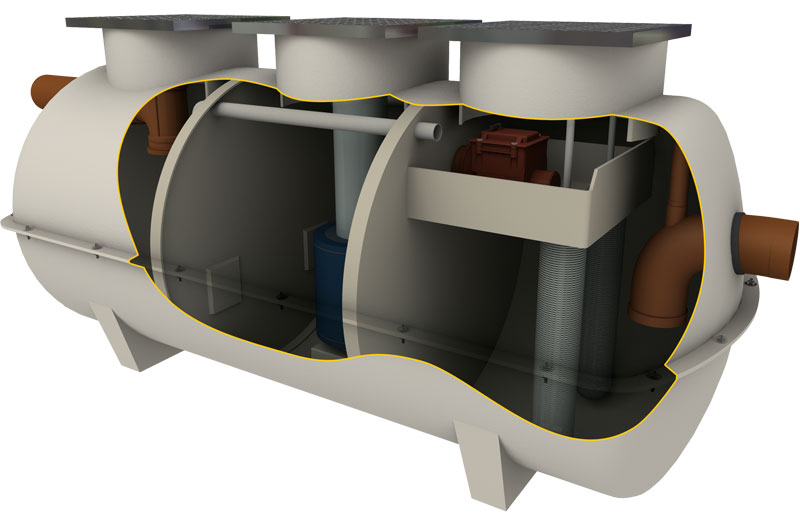Marsh:Marator oil separator – an innovative separator system that breaks the constraints of the current standards.
The Marator oil separator takes advantage of nanofiltration technology to produce discharge that is 50 times better than any current separator available on the market today; that is less than 0.1mg/ltr – the standard only requires less than 5mg/ltr for a ‘class 1 discharge’.
Testing was analysed for hydrocarbon content using infrared spectroscopy at GEOTAIX UMWELTTECHNOLOGIE GmbHA.
During the sampling period, five samples of 500ml were taken via the sampling point. The quality of discharge from the Marator exceeded the measureable level of the test equipment not to mention the current EN standard:
Are outmoded EN standards an environmental concern?
Current EN standard
The European Standard, BS EN 858 parts 1&2, was introduced in 2002 to normalise design and regulate testing of products across Europe. This standard settled on a two-tier quality level – class 1 and class 2.
Class 1 – designed to achieve a discharge concentration of less than 5mg/ltr of oil in the discharge
Class 2 – designed to achieve a discharge concentration of less than 100mg/ltr of oil in the discharge
Once testing is complete and approval achieved, manufacturers are free to bring their products to market.
The effects of current standards
A good starting point for any product is to set out relevant standards and levels of quality, both in oil separator build and performance. However, since the introduction of BS EN 858 in 2002, product development in gravity oil/liquid separation has remained static.
Manufacturers are only required to meet the testing standards to sell product. There has been no natural drive to improve product performance.
The current class 1 standard of less than 5mg/ltr of light liquid is only determined by test conditions. Our experience in this field tells us that this standard is rarely met once a product is installed.
The reality of current standards
With the current level of 5mg/ltr for a Class 1 discharge – we ask “Are Class 1 oil separators the very best that manufacturers can offer?”
Studies have shown that the majority of hydrocarbon pollutants entering the water system stems from urban developments. Figure 2 shows the toxic effects of particular contaminants on humans and aquatic life.
Leaving aside the toxic effects of contaminants on human and aquatic life, when a hydrocarbon molecule spreads to one molecule thick and given enough surface area to spread, five litres of oil would be more than enough to contaminate five football pitches.
In addition, most hydrocarbon molecules are attached to silt particles; where Stokes law proves that these particles will sink rather than float as conventional separators require.
When mixed with other elements in real life scenarios, such as glycol, standard gravity separators become less efficient at contaminate removal.
In our view, the current testing standards covering products within the gravity oil separator market are outmoded and failing to protect the environment as they should. They do not reflect or address any ‘real-life’ scenario where hydrocarbon pollution is prevalent.
The solution = the Marsh:Marator


